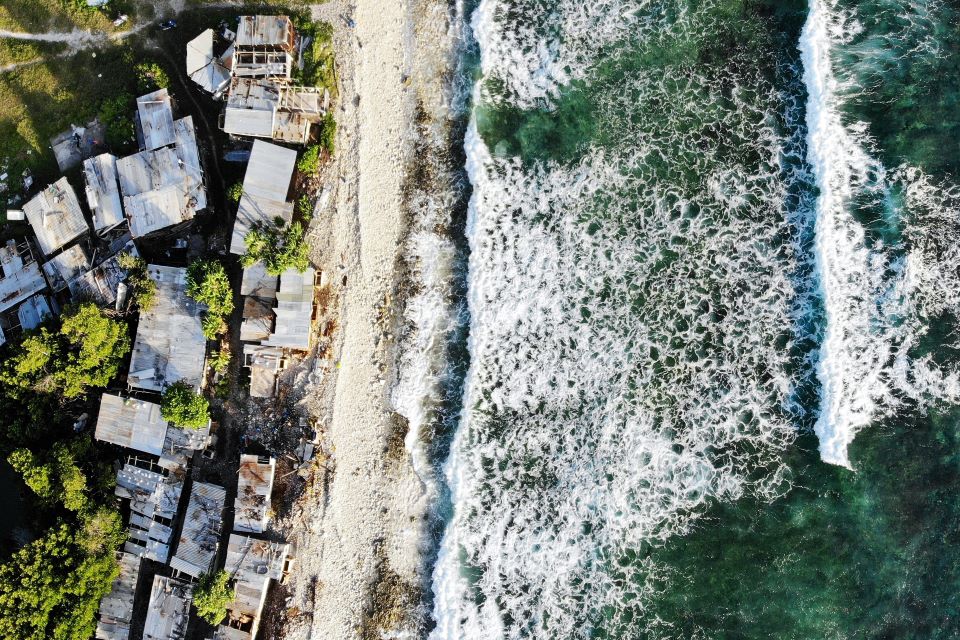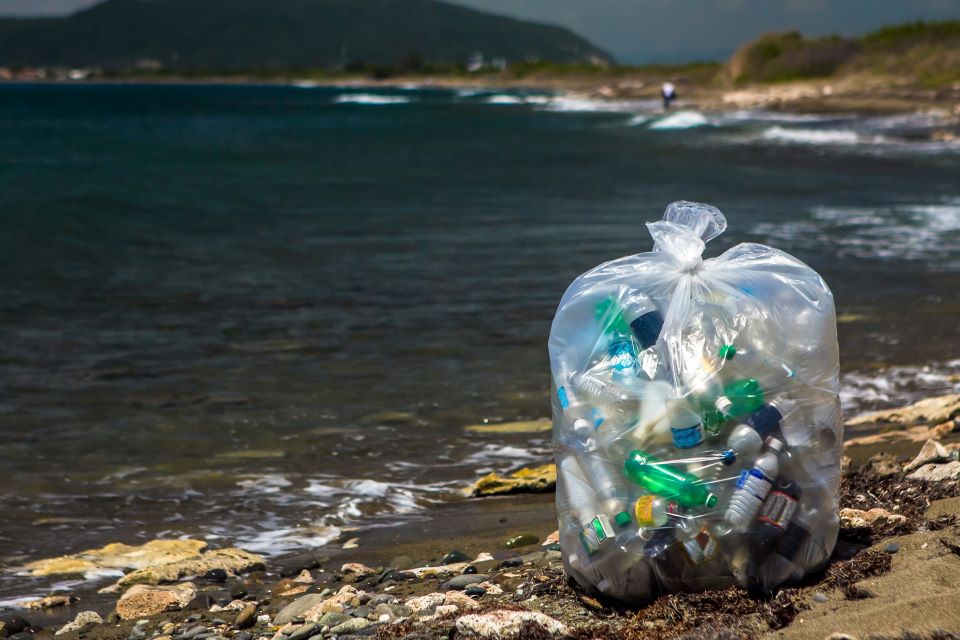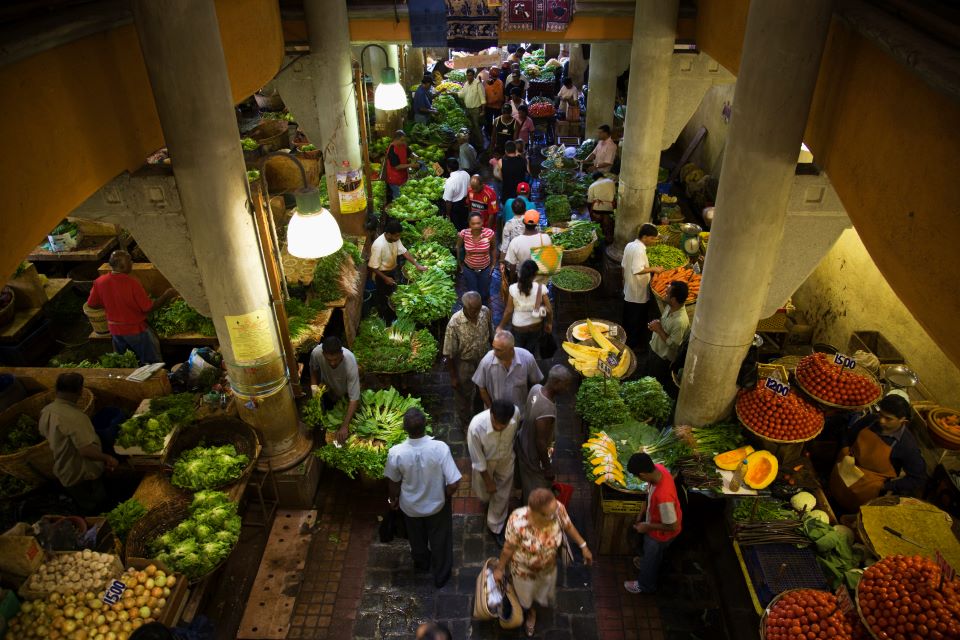UK Small Island Developing States strategy 2022 to 2026
Published 27 February 2023

Ministerial Foreword by The Rt Hon Andrew Mitchell MP

The high priority that we place on Small Island Developing States (SIDS) is both a reflection of our deep historical connections and friendships, and a cornerstone of our climate ambitions. SIDS suffer the largest losses from natural disasters as a percentage of national output, have suffered the steepest GDP declines of any country group due to the COVID-19 pandemic, and are expected to face some of the worst impacts of global climate change. Meanwhile they steward nearly one-third of the global ocean, which is uniquely important for international climate and biodiversity action.
The UK has helped to drive the improvement in lives around the globe through our support for international development, tackling poverty, providing life-saving humanitarian assistance, and supporting girls’ education. Many of these gains are now threatened by climate change, and as a result the UK has not only committed support to the most vulnerable countries but has also called for improvements to wider international finance for those most at risk.
The UK’s Small Island Developing States Strategy builds on these foundations and will help us to work towards the UK’s vision for SIDS, set out in our Strategy on International Development. The vision to build economic and climate resilience by 2030 will only be possible if we support countries to adapt to the impacts of climate change, improve access to finance, prevent biodiversity loss, and build diverse and resilient economies and institutions. This is a whole of government approach and we will channel world class UK expertise and partnerships towards the priorities of SIDS themselves.
Our strategy is about empowering people and countries to direct their own future. We will focus on more responsive development support for SIDS, including lending our voice to advocate for issues important to SIDS internationally. At the same time, we will ensure that our partnership with SIDS and other actors furthers UK ideals, standing up for freedom around the world and supporting small islands to plan for their own sustained progress and resilience.
The Rt Hon Andrew Mitchell MP , Minister of State (Development and Africa)
UK Small Island Developing States Strategy 2022 to 2026
Small Island Developing States (SIDS) are a vital part of our global community. They make up 20% of the UN family, steward 30% of the global ocean and are home to some of the world’s most endangered endemic species. They are at risk from climate change, natural disasters, and are acutely vulnerable to global economic shocks. The UK has strong bonds of friendship with SIDS, including through the Commonwealth. The UK, and the international community, have recognised that due to their challenges SIDS are a special case for sustainable development.
The UK’s new approach to SIDS is underpinned by 3 broad principles. These principles underline that SIDS are important to the UK, different from their peers, and are themselves responsible for achieving change. Working with our international partners the UK will actively support SIDS by pressing for international action on SIDS vulnerabilities, supporting increased resilience and prosperity, and working together on challenges and making the most of shared opportunities. The UK will therefore be a leading advocate for SIDS on the international stage, and a major partner in building resilience through our expertise and programmes.
Tackling climate change and protecting biodiversity remain key concerns for the global community. We know that SIDS are disproportionately affected by the impacts of global warming despite contributing only a tiny fraction of the world’s emissions. The resulting sea-level rises, extreme weather events and warming ocean are already jeopardising infrastructure as well as food and water security. Despite these risks SIDS still struggle to access the finance they need to make critical improvements and to safeguard their livelihoods. The economic impact of COVID-19 on SIDS underlines the urgency of catalytic action to improve economic and climate resilience.
It is imperative that the international community responds more effectively to SIDS and ensures that climate vulnerable nations are able to access finance more easily. International systems are simply not delivering sufficiently for SIDS. The UK, Belize, Fiji and the Alliance of Small Island States have issued a Call to Action for reform of these systems. Through constructive dialogue we want to create consensus around climate action and biodiversity solutions that deliver for SIDS, and build greater resilience.
We know that existing support needs to be better tailored to SIDS’ needs. The UK will therefore continue to advocate for international bodies to take an evidence-based approach — including on climate, ocean governance, access to development finance, and multilateral development system reform. We will build on the Glasgow Climate Pact and our climate finance commitments to support SIDS in achieving sustainable economic resilience.
This includes championing the principle set out in the Glasgow Pact that decisions on finance should be guided by levels of vulnerability.
Through our SIDS Hub in the Foreign, Commonwealth & Development Office we will continue to strengthen and adapt our support, responding to the changing needs of SIDS. We will use our network of Posts to work in partnership with SIDS governments, including through development programmes and policy engagement. The approach will be across Government, drawing on expertise in areas such as oceans, climate, and trade. Our work will be led by a SIDS Envoy, reflecting the importance that the UK attaches to these issues.
We believe that sustainable, prosperous SIDS benefit the international community and helps to secure the future health of our planet.
Areas of focus
Our new approach includes 6 interlinked areas of mutual interest where the UK can support SIDS to grow and develop their resilience.
Climate change and natural disasters
SIDS are vulnerable to the climate crisis and rising temperatures. Globally, SIDS make up two thirds of countries which suffer the highest relative financial losses from natural disasters. Extreme weather events also affect trade flows, degrading critical infrastructure such as ports, container terminals, and airports. Following COP26, we will continue to support SIDS in advocating for greater ambition and global action across the Paris Agreement goals of mitigation, adaptation and climate finance, and disaster risk finance.
Ocean and biodiversity
SIDS make up 14% of the world’s coastline and with 80% of the entire SIDS population living near the coast, local economies are heavily dependent on marine resources. Fish biomass provides significant dietary protein but is projected to decline by up to 25% by 2100 due to overfishing and climate change. Supporting SIDS to grow their maritime economies sustainably while adapting and mitigating climate change is of critical importance. Through new funding streams the UK will support SIDS to reduce poverty, protect and sustainably manage their marine resources and build resilience.
Economic diversification and prosperity
SIDS are more trade dependent than other developing states, with narrow economies often reliant on a single source of export income (such as tourism or remittances). The UK will be pragmatic in recognising the economic challenges faced by SIDS, and we affirm the position set out in the Glasgow Climate Pact that vulnerability should guide decisions on the allocation of finance. We will encourage all providers of finance, including the private sector, to prioritise economic and climate resilience in the investments that they make, with a focus on nature-based solutions and innovations.

Debt
Many SIDS struggle with high debt levels compared to other developing countries at a similar income level. The economic shock of the COVID-19 pandemic has further increased SIDS’ vulnerabilities. The UK is committed to debt resolution through multilateral fora such as the Paris Club and G20 Common Framework. Through these fora, the UK has participated in a historic Debt Service Suspension Initiative (DSSI), which saw over $10 billion of repayment suspended between May 2020 and June 2021. There are currently 73 countries which are eligible for the DSSI.
Inclusive governance and shared values
SIDS governance remains impaired by lack of capacity and resources. Through more focused programming we can support SIDS to better access and utilise international finance. Through our work with key donors, we are developing better guidelines to improve aid impact in SIDS through more tailored approaches. Inclusivity will remain at the centre of our efforts, we will promote equal access to rights and opportunities for marginalised groups, learning from best practice to help communities find a voice.
Multilateral modernisation
The UK has been a prominent advocate for an international system ready to meet the needs of the modern world. SIDS face distortionary rules, poor measures of success, and capacity demands that are almost impossible for their states to meet. The UK will continue to work with likeminded partners in bodies such as the UN, Green Climate Fund, the Commonwealth, and the Organisation for Economic Cooperation and Development–Development Assistance Committee (OECD-DAC) to advocate for simplified procedures more suitable for small states.

